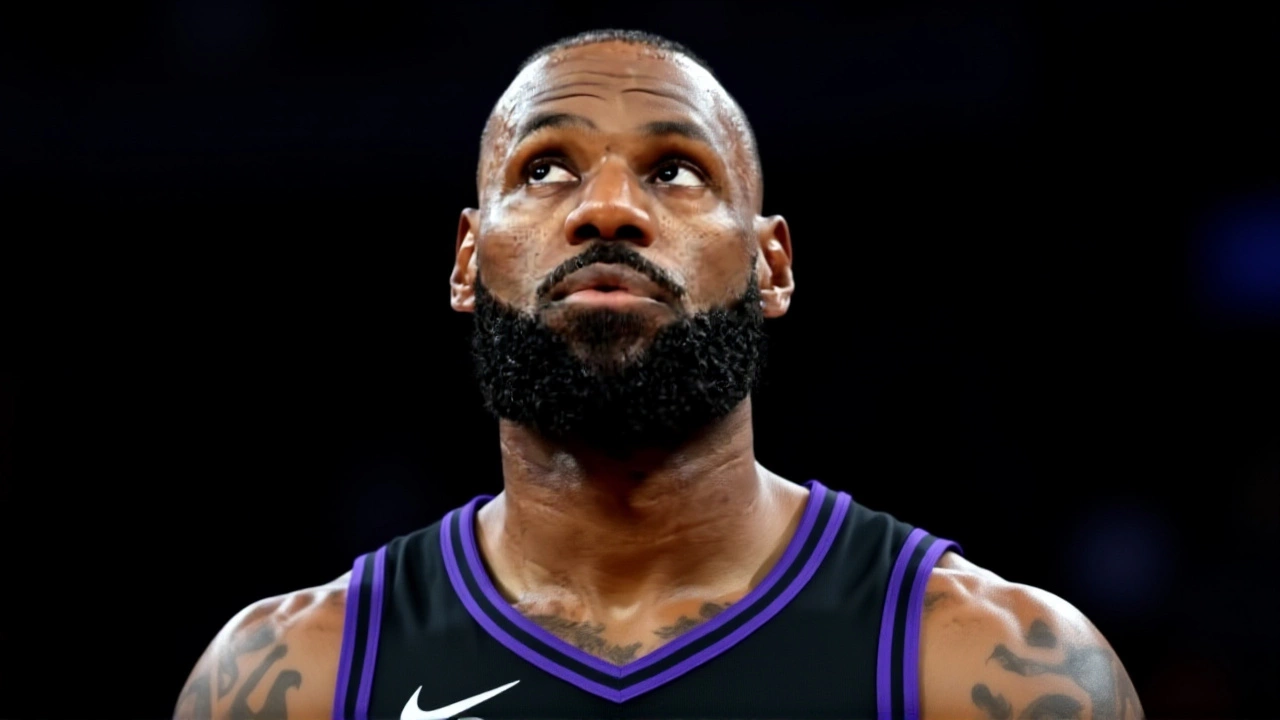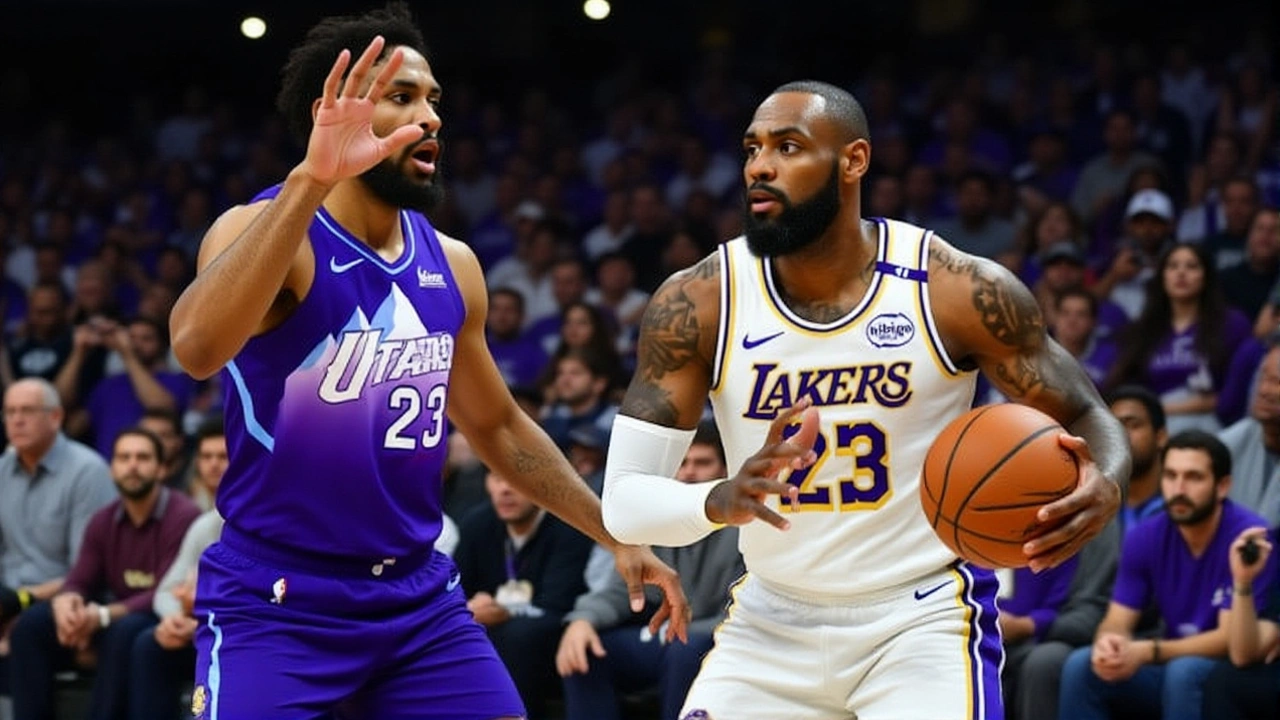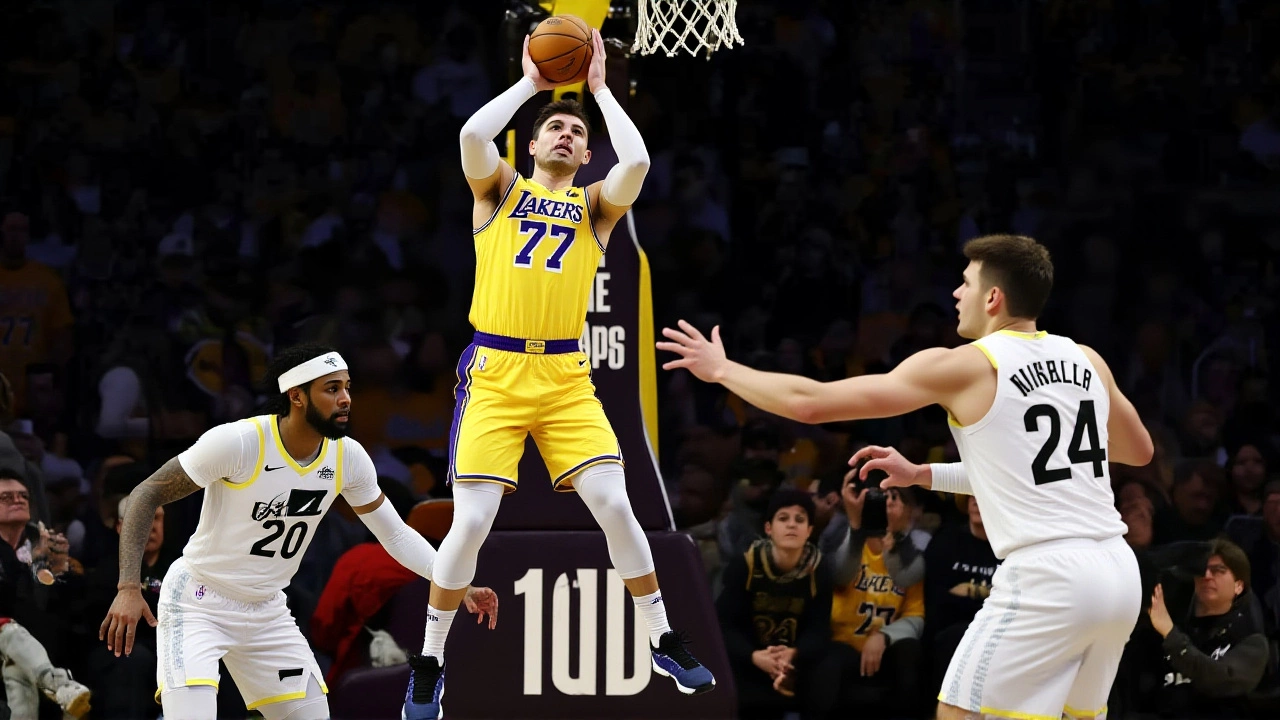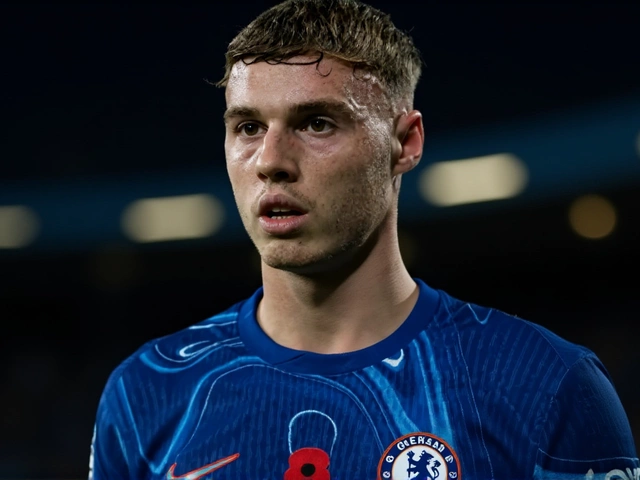The Los Angeles Lakers didn’t just win—they announced themselves as a force again. On Tuesday, November 18, 2025, at Crypto.com Arena in Los Angeles, the Lakers crushed the Utah Jazz 140-126 in a high-octane, back-and-forth thriller that ended any lingering doubts about their championship ceiling. The star of the night? Luka Dončić, who dropped 37 points, 10 assists, and 5 rebounds in a performance that felt like a statement. But the real story? The return of LeBron James. Listed as questionable just hours before tip-off, the 39-year-old legend played 34 minutes, dished out 10 assists, and looked every bit the leader the Lakers needed.
Dončić Steals the Show—Again
For weeks, Luka Dončić had been carrying the Lakers on his back. Entering the game, he was averaging 34.4 points and 10 assists, numbers that would’ve made him an All-Star starter in any other season. But against the Jazz, he turned up the dial. By the 3:03 mark of the third quarter, he already had 30 points on 9-of-18 shooting, including a cold-blooded 11-of-14 from the free-throw line. His signature step-back threes? They weren’t just falling—they were denting the net. When he hit his 10th assist with 8:25 left in the fourth, the crowd rose as one. This wasn’t just scoring; it was orchestration. He made the Jazz look lost, rotating helplessly as he picked apart their defense like a surgeon.
LeBron’s Quiet Return
Here’s the twist: LeBron James didn’t need to score to change the game. He didn’t need 20 points. He just needed to be on the floor. After missing the previous two games with a sore knee, his presence alone shifted the Jazz’s entire defensive scheme. Suddenly, double teams that had been locked in on Dončić had to hesitate. That opened lanes for Austin Reaves, who scored 28, and Deandre Ayton, who finished with 21 points on 9-of-11 shooting. "Obviously, it’s LeBron and just his presence and his ability is going to lift the team," Reaves said after the game. "He’s a winner at the end of the day and he has been his whole career, and I expect him to do nothing but come in and be one of the best players."
James’ 10 assists weren’t flashy. No alley-oops, no no-look passes in traffic. But they were perfect—timing, spacing, anticipation. He found Ayton cutting to the rim. He hit Reaves in the corner. He found Dončić in transition with a simple bounce pass. It was the kind of basketball IQ that only comes with 22 seasons in the league. And for a team that had been winning without him, it was the missing ingredient.
The Turnover That Broke the Jazz
The game was tied at 67 with 18.8 seconds left in the second quarter. The Jazz had been hanging tough, led by Lauri Markkanen, who had 31 points by the 10:23 mark of the fourth. But then came the third quarter. From 3:36 to 0:02 left, the Lakers went on a 23-5 run. It started with a Dončić steal, ended with a Reaves three. The Jazz didn’t score for over six minutes. Their offense, which had averaged 152 points in their last win against the Pacers, looked disjointed. Jusuf Nurkić, who had 14 rebounds in their last game, finished with just 6 against the Lakers’ physical interior defense. And Marcus Smart? He had three steals in the second half alone, disrupting every Jazz transition.
Then, in the fourth, the Lakers did it again. A 16-4 run over 3:42, capped by a Dončić step-back three that made it 124-107. The Jazz had no answer. Their defense ranked second in rebounds but 29th in opponent three-point attempts—meaning they gave up too many open looks. And when the Lakers didn’t shoot threes (they only made 28.2% of their points from beyond the arc, the lowest in the NBA), they made up for it with efficiency. Ayton, with his 69.2% field goal percentage—third-best in the league—was a constant in the paint.

Why This Matters Beyond the Box Score
The Jazz? They’re now 5-9 and have lost 14 straight road games against Western Conference teams with winning records. Their offense is built on Markkanen’s scoring explosion (30.6 ppg) and Keyonte George’s 33-point outburst against Chicago—but they lack depth. Their bench scored just 18 points Tuesday. Meanwhile, the Lakers? Eight different players have scored 25+ in a game this season—tied for the most in the NBA. That’s not luck. That’s depth. That’s balance.
And the trends? They’re chilling. The Lakers have won their last 10 home games as favorites against Northwest Division teams. They’ve covered the spread in eight of their last nine as favorites after a win. The Jazz? They’ve failed to cover the spread in four straight road games after an overtime win. And here’s the kicker: eight of their last nine games after overtime went OVER the total. Tuesday’s game? 266 points. Over the line by 26.
What’s Next?
The Lakers, now 11-4, face the Phoenix Suns on Friday. With LeBron fully healthy and Dončić playing like a MVP candidate, they’re not just contenders—they’re favorites. The Jazz? They head home to face the Portland Trail Blazers, still searching for consistency. Their road woes against elite teams are no longer a trend—they’re a crisis.

Behind the Numbers
- Luka Dončić: 37 points, 10 assists, 5 rebounds, 5 turnovers
- LeBron James: 14 points, 10 assists, 6 rebounds, 2 steals
- Deandre Ayton: 21 points, 9 rebounds, 9-of-11 FG (69.2%)
- Lauri Markkanen: 37 points, 7 rebounds, 12-of-21 FG
- Austin Reaves: 28 points, 4 assists, 4-of-7 from three
The Lakers shot 54.3% from the field. The Jazz? 48.1%. The difference? Discipline. The Lakers moved the ball. The Jazz stood still.
Frequently Asked Questions
How did Luka Dončić’s performance compare to his previous games this season?
Dončić’s 37-point, 10-assist night was his fourth 35+ point game this season and his third double-double. He’s now averaging 34.4 points and 10 assists—tops in the league among guards. His efficiency improved dramatically in this game, shooting 13-of-26 from the field after struggling with rhythm in his last two outings. This was his most complete performance since joining the Lakers, blending isolation scoring with elite playmaking.
Why was LeBron James’ return so impactful despite only scoring 14 points?
LeBron’s impact wasn’t in scoring—it was in control. His 10 assists came on perfectly timed passes that forced the Jazz to overcommit, opening up driving lanes and open threes for others. He drew defensive attention away from Dončić, allowing the Slovenian star to operate with more space. Statistically, the Lakers’ offensive rating jumped 12.7 points per 100 possessions when he was on the floor. His presence turned a good offense into a lethal one.
What does this loss mean for the Utah Jazz’s playoff chances?
The Jazz are now 5-9 and sit 11th in the Western Conference. Their 14-game road losing streak against winning Western teams is a death knell for playoff hopes. Even with Markkanen’s 30.6 ppg, their defense ranks 26th in the league, and they have no reliable second scorer beyond George and Nurkić. Unless they trade for a playmaker before the deadline, their postseason window is closing fast.
How unusual is it for a team to have eight different players score 25+ points in a single season?
It’s rare. Only three teams in the past 20 seasons have had eight or more players reach 25+ points in a season: the 2017 Warriors, the 2021 Nets, and now the 2025-26 Lakers. That kind of balance suggests elite ball movement and defensive indifference—opponents can’t focus on one star. For the Lakers, it’s the product of Dončić’s playmaking, James’ vision, and a deep bench that includes Reaves, Ayton, and D’Angelo Russell.
Why did the Jazz struggle so much in the third quarter?
The Jazz went 0-for-8 from three and turned the ball over five times during the Lakers’ 23-5 run. Their offense relies on isolation plays and pick-and-rolls, but the Lakers switched everything, denying Nurkić touches and forcing Markkanen into contested jumpers. Utah’s bench, which had been solid in previous games, failed to generate any rhythm. They scored just 5 points in the entire quarter.
What’s the significance of the Lakers covering the spread in eight of their last nine games?
It signals consistent dominance, not just wins. The Lakers have been favored in every game since early November and have outperformed expectations. Their ability to pull away in the second half—especially against teams like the Jazz, who fade under pressure—shows elite clutch execution. Oddsmakers now list them as -12 favorites in their next game, reflecting confidence in their depth and cohesion.




